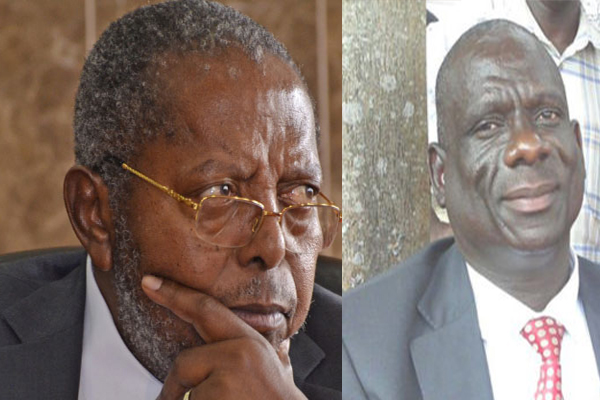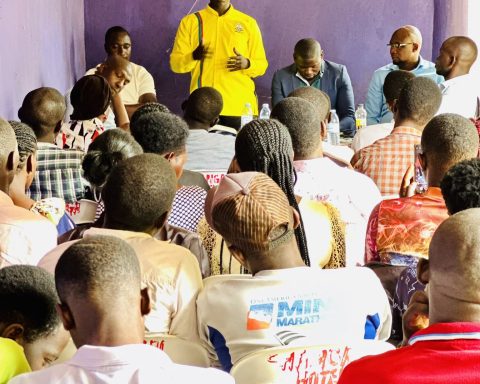The Bank of Uganda Amendment Bill 2019 that is set to trim the Powers of the Governor and separating the fusion between the Bank of Uganda management from the board of directors has been confirmed ready.
Notably, Parliament of Uganda has held the first reading of the constitution amendment 2020 meant to reduce powers of the untouchable Governor and deputy governor of the Central Bank of Uganda (BoU).
The proposed amendments came in the wake of scandals that rocked the central bank recently leading to a probe by the Committee on Commissions, Statutory Authorities and State Enterprise (COSASE) in the sale of several commercial banks.
According to the Bank of Uganda Act, the Central Bank Governor who is also the most senior officer in the bank also chairs the board of directors and is deputized by the Deputy Governor. The other members are the Secretary to the Treasury and directors from different departments in the bank.
The bill seeks to amend the constitution fallowing the parliament resolutions seeking to remove the governor and deputy governor from being the chairperson and deputy chairperson respectively of the board of directors of the central bank.
“We would like the separation of powers between the governor central bank and the chairperson board such that the chairman board can independently supervise the governor who will carrying out the day to day running of the central bank” Mawanda said.
Mawanda further noted that the bill help to solve all the impasses that have been happening in the bank from the sale of the defunct private banks, infighting among others. For now the board of Governors is reliant on each other and this brings out issues of accountability.
Before the bill 2019, the Board of Directors of Bank of Uganda (BoU) blamed the difficulties faced by the Central Bank on gaps in the Constitution.
Article 161 (2) of the Constitution vests the authority of the Central Bank on the Board. According to the law, the Chairperson of the Board is the Governor while the Vice Chairperson is the Deputy Governor.
The directors of the Central Bank however, said that there is need to separate the role of the board Chairperson from that of management.
According to Mawanda, the new amendment Bill 2020 has also other three insertions under article 161 which include;161A, 161B, 161C that explain in details about the roles of the governor and the deputy governor.
“There shall be a governor appointed under article 161 who shall be the Chief Executive of the Bank of Uganda. The office of the governor shall be a public office,” states the Bill.
As it stands, the governor and deputy governor are the chairperson and deputy chairperson of the board of directors of the Central Bank respectively which makes them untouchables and unquestionable especially when the Central Bank fall into a Crisis.
This was evident during the Parliament Committee on Commissions, Statutory Authorities and State Enterprises (Cosase)’s probe into the closure of seven commercial banks by BoU, Where the committee discovered that two most powerful heads in BoU had a lot of powers by the constitution.
More to that, Parliament learnt that the lack of supervision for the governor who is also the chairman of the Bank’s board was itself causing supervisory challenges at the Bank of Uganda. Currently, the governor, according to the Bank of Uganda Act, is also the chair of the board of directors and is deputized by his deputy.
The other members are secretary to the treasury Keith Muhakanizi, Dr. Willam Kalema, Mr. James Kahoza, Ms Jude Obitre Gama and Ms Josephine Okui Ossiya.
While handing over the report to the Speaker of Parliament Rebecca Kadaga in 2019, the then chairperson of Cosase Abdu Katuntu proposed a motion to reduce powers from the two most powerful leaders of the Central Bank in order to avoid other blunders which may arise in future and affect the economy.
Katuntu also said the constitution didn’t stipulate the specific functions of both the governor and his deputy which may also be a problem if not solved.
To solve the gaps that were highlighted by Cosase report, on 28th February 2019, Parliament passed a resolution in favour of some of the proposals that were made in the report such as amending article 161 of the constitution.
![]()



























